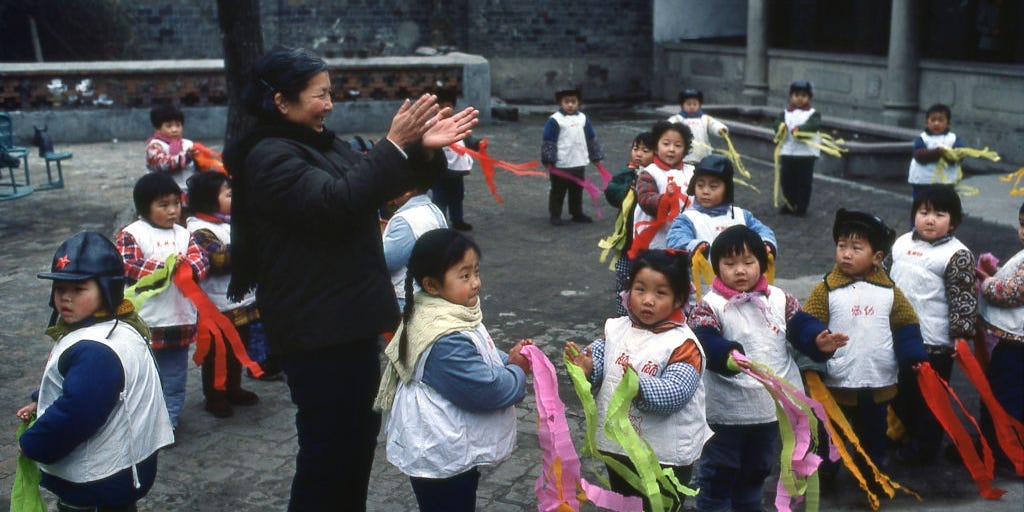- China’s birth rate has plummeted, with the number of newborns expected to fall by 500,000 to about 9 million in 2023.
- The number of kindergarten students reportedly decreased in 2021 for the first time in about 20 years.
- If class sizes remain the same, there could be nearly 2 million teachers redundant by 2035.
China’s decades-long one-child policy has created a demographic nightmare for the world’s second-largest economy, with millions of schoolteachers potentially losing their jobs soon due to falling birth rates.
Schools in China have previously had to pack up to 50 students per teacher into classrooms. The South China Morning Post reported Tuesday that if classes do not shrink, China could face a surplus of 1.5 million elementary school teachers and 370,000 middle school teachers by 2035.
According to the National Bureau of Statistics, China’s population decreased last year for the second consecutive year. The birth rate fell from 6.77 births per 1,000 people to an all-time low of 6.39 births per 1,000 people.
Meanwhile, according to statistics from the Ministry of Education, the number of kindergarten children in 2021 decreased for the first time in about 20 years. The total number of elementary school students will also decrease for the first time in 10 years in 2022.
A researcher at China’s National Academy of Education Sciences told the South China Morning Post that the drop in students would “inevitably” lead to teacher redundancies in some regions. They estimate that local governments will hire fewer teachers in the future due to the financial burden caused by widespread economic disruption.
The Chinese government scrapped its one-child policy in 2015, and since then authorities have been encouraging people to have more children. For example, in the populous eastern city of Hangzhou, the local government has started paying parents about $2,800 to have a third child.
Similar incentives have sprung up across the country in recent years, but the demographics are only getting worse, and not just among young people. A study published in 2023 by consulting firm Terry Group concluded that China’s aging population will make the economy unable to compete with the United States and other rivals on the world stage.
In the company’s view, it’s not just population decline that poses a threat, but the growing proportion of elderly people “will once again increase China’s overall dependency burden.”
“In 1975, there were 13 times as many children as elderly people in China,” Terry Group researchers wrote. “By 2050, the United Nations predicts that there will be twice as many elderly people as children.”
Apart from demographic challenges, the Chinese government is weathering historic real estate turmoil, deflation, and extremely bearish stock market sentiment.
